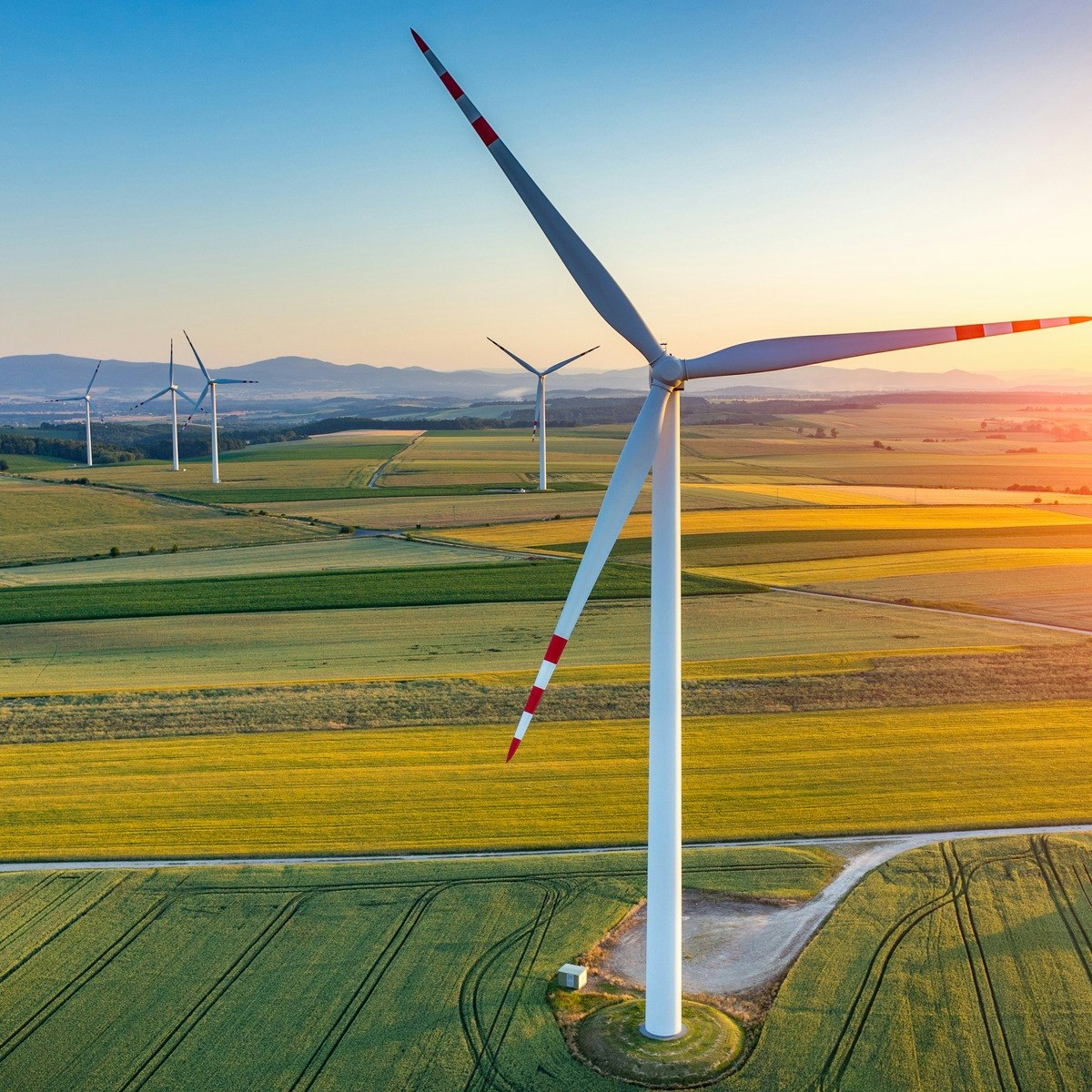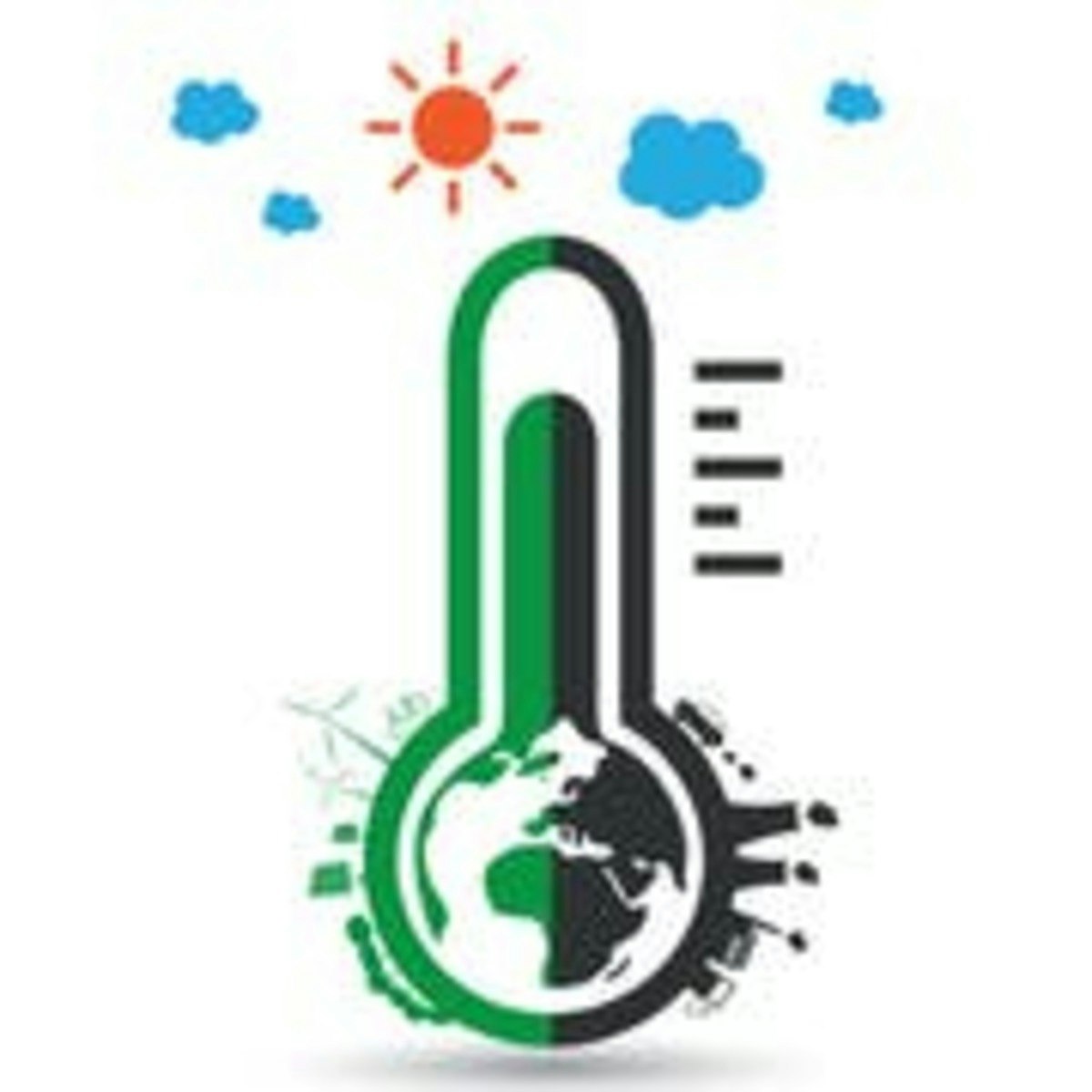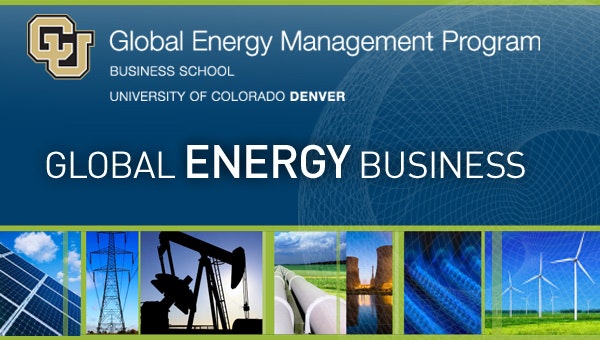Energy Policy Analyst
Energy Policy Analyst: Shaping Our Energy Future
An Energy Policy Analyst works at the intersection of energy systems, economics, law, and environmental science. Their primary role is to research, analyze, and develop policies related to the production, distribution, and consumption of energy. This involves understanding complex technical details, economic impacts, social considerations, and political landscapes to advise decision-makers.
Working in this field can be incredibly engaging. Analysts grapple with some of the most pressing global challenges, including climate change mitigation, ensuring energy security, and promoting sustainable development. They have the opportunity to influence regulations, shape market dynamics, and contribute to a transition towards cleaner, more efficient energy systems, impacting society on a large scale.
This career path attracts individuals with strong analytical minds, a passion for problem-solving, and a desire to make a difference. Whether you are a student exploring options, a professional considering a pivot, or simply curious about the energy sector, understanding this role is crucial in navigating the evolving energy landscape.
Role and Responsibilities of an Energy Policy Analyst
Core Duties and Functions
The core duties of an Energy Policy Analyst revolve around critical assessment and advisory functions. They meticulously evaluate existing and proposed energy policies for their effectiveness, efficiency, and equity. This often involves quantitative analysis, such as cost-benefit studies, and qualitative assessments of potential impacts on various stakeholders.
A significant part of the job involves research and data analysis. Analysts gather information on energy trends, technological advancements, market behaviors, and regulatory environments. They synthesize this data to identify problems, forecast future scenarios, and formulate evidence-based recommendations for policymakers or organizational leaders.
Stakeholder engagement is another key responsibility. Analysts often communicate complex policy details to diverse audiences, including government officials, industry representatives, non-profit organizations, and the public. This requires strong communication skills to facilitate dialogue, build consensus, and advocate for specific policy positions or adjustments.
Sectors of Employment
Energy Policy Analysts find opportunities across various sectors. Government agencies at the local, state, federal, and international levels rely heavily on their expertise to craft legislation, implement regulations, and manage energy programs. Think tanks and research institutions also employ analysts to conduct independent research and influence public discourse.
Non-governmental organizations (NGOs) focused on environmental protection, consumer advocacy, or sustainable development hire analysts to support their missions. These roles often involve advocating for specific policies, educating the public, and holding governments and corporations accountable.
The private sector, particularly energy companies (utilities, oil and gas, renewables), consulting firms, and financial institutions, also needs energy policy expertise. Analysts in these roles help companies navigate complex regulatory landscapes, assess investment risks and opportunities related to policy changes, and develop corporate sustainability strategies.
Impact on Policy and Sustainability
The work of Energy Policy Analysts directly shapes regulatory frameworks governing energy production, transmission, and use. Their analysis informs decisions on carbon pricing, renewable energy mandates (like Renewable Portfolio Standards), energy efficiency standards, and subsidies for different energy sources.
By providing rigorous analysis and clear recommendations, these professionals play a vital role in advancing sustainability goals. They help design policies that accelerate the transition away from fossil fuels, promote the adoption of clean technologies, enhance energy efficiency, and ensure energy access and affordability.
Ultimately, their efforts contribute to achieving broader societal objectives, such as mitigating climate change, improving air quality, strengthening energy security, and fostering economic development through innovation in the energy sector. Their influence is critical in navigating the complex trade-offs inherent in energy policy decisions.
These introductory courses provide a broad overview of the energy landscape and the policy challenges involved in the transition to sustainable energy systems.
Formal Education Pathways
Relevant Academic Degrees
A bachelor's degree is typically the minimum requirement to enter the field, often serving as a foundation for entry-level research or support roles. Common undergraduate majors include Environmental Science, Economics, Political Science, Public Policy, or Engineering (especially environmental, electrical, or chemical).
Many Energy Policy Analysts pursue advanced degrees to deepen their expertise and enhance career prospects. Master's degrees in Public Policy (MPP), Public Administration (MPA), Environmental Management, Energy Systems, or Economics are highly valued. These programs often offer specializations in energy or environmental policy.
For those interested in research-intensive roles, academia, or high-level advisory positions, a Ph.D. in a related field may be beneficial. Doctoral studies allow for deep specialization and the development of advanced research methodologies crucial for tackling complex energy policy problems.
Understanding the interplay between economics, policy, and energy systems is fundamental. This book offers insights into these connections.
Key Coursework and Specializations
Regardless of the specific degree, certain areas of coursework are particularly relevant. Foundational knowledge in economics, including microeconomics, macroeconomics, and econometrics (econometrics), is essential for understanding market dynamics and conducting quantitative policy analysis.
Courses focused specifically on energy systems, energy markets, environmental law, climate science, and policy analysis methods provide core competencies. Statistical analysis and data modeling skills are increasingly important, often requiring coursework in statistics or data science.
Depending on career goals, specialization can be valuable. This might involve focusing on renewable energy technologies, electricity grid modernization, energy efficiency, transportation policy, international energy relations, or climate adaptation strategies. Interdisciplinary programs combining policy, science, and economics are often ideal.
These courses delve into the specifics of energy systems, markets, and the policies that govern them, providing essential technical and economic context.
Graduate and Research Opportunities
Graduate programs offer structured pathways to advanced knowledge and research skills. Master's programs typically blend coursework with practical application, often culminating in a capstone project or thesis addressing a real-world policy issue. Internships are frequently integrated into these programs, providing valuable professional experience.
Ph.D. programs are research-focused, requiring students to make original contributions to the field through extensive dissertation research. These programs train individuals for careers in academia, advanced research roles in think tanks or government, or high-level strategic positions.
Many universities host research centers or institutes dedicated to energy and environmental policy. These centers often provide opportunities for graduate students to collaborate with faculty on cutting-edge research projects, publish scholarly work, and engage with policymakers and industry leaders.
For those considering advanced study or research, these books explore the complexities of energy transitions and policy challenges.
Online and Self-Directed Learning
Transitioning via Online Education
For individuals looking to pivot into energy policy analysis from other fields, or for those seeking to supplement formal education, online learning offers a flexible and accessible route. It's entirely feasible to build foundational knowledge and acquire specific skills through online courses and resources.
Platforms like OpenCourser aggregate thousands of courses from universities and institutions worldwide, covering topics from basic energy principles to advanced policy analysis techniques. This allows learners to tailor their education to specific career goals or knowledge gaps without the time and cost commitments of traditional degree programs.
While online learning requires self-discipline, it empowers learners to acquire relevant competencies at their own pace. Certificates from reputable online courses can demonstrate initiative and specialized knowledge to potential employers, especially when combined with practical projects.
OpenCourser's Learner's Guide provides valuable tips on structuring self-learning paths and maximizing the benefits of online education.
Recommended Online Learning Topics
Key areas to focus on include energy economics, which covers market structures, pricing, and investment analysis in the energy sector. Understanding policy design and evaluation methods, including cost-benefit analysis and impact assessment, is crucial.
Technical literacy is also important. Online courses can provide overviews of different energy technologies (renewables like solar and wind, fossil fuels, nuclear), grid operations, and energy storage solutions. Familiarity with climate science and environmental regulations provides essential context.
Developing data analysis skills is highly recommended. Courses in statistics, data visualization, and potentially software like Excel, R, or Python geared towards policy analysis can significantly boost employability. You can explore relevant options using OpenCourser's browse feature, perhaps starting with categories like Public Policy or Environmental Sciences.
These online courses cover essential topics for aspiring energy policy analysts, from energy transitions and policy design to specific technologies and market dynamics.
This book provides a comprehensive overview relevant to understanding sustainable energy pathways.
Building a Portfolio Independently
Theoretical knowledge gained through online courses is most effective when paired with practical application. Building a portfolio of independent projects is an excellent way for self-directed learners and career pivoters to demonstrate their skills and passion to potential employers.
Projects could involve analyzing a specific local or national energy policy, conducting a comparative study of renewable energy incentives across different regions, or developing a model to estimate the impact of an energy efficiency program. Publicly available datasets from government agencies (like the U.S. Energy Information Administration) can provide the raw material for such analyses.
Sharing analyses through blog posts, presentations, or contributions to online forums can showcase expertise and communication skills. Engaging with relevant professional organizations or local environmental groups can also provide project opportunities and valuable networking connections.
Consider saving courses or books that interest you to your OpenCourser list to build a personalized learning path.
Key Skills and Competencies
Analytical and Quantitative Skills
Strong analytical skills form the bedrock of this profession. Energy Policy Analysts must be adept at dissecting complex problems, identifying underlying drivers, and evaluating potential solutions based on evidence. This involves critical thinking and logical reasoning.
Quantitative skills are essential for rigorous analysis. This includes proficiency in statistical methods, econometrics, cost-benefit analysis, risk assessment, and data modeling. The ability to interpret and manipulate data to draw meaningful conclusions is paramount.
Analysts often need to develop or utilize models to simulate policy impacts, forecast energy demand, or assess the economic feasibility of different energy projects. Comfort with numbers and quantitative reasoning is non-negotiable.
Understanding the economic principles behind energy policy is crucial. This book delves into the intersection of economics and climate change.
Communication and Interpersonal Skills
Analysts must effectively communicate complex technical and economic information to diverse audiences, many of whom may not have specialized backgrounds. This requires clarity, conciseness, and the ability to tailor communication styles.
Excellent writing skills are necessary for drafting policy briefs, research reports, memos, and presentations. The ability to synthesize large amounts of information into clear, persuasive arguments is vital for influencing policy decisions.
Strong interpersonal skills are needed for stakeholder engagement, collaboration, and negotiation. Analysts often work in teams and interact with policymakers, industry representatives, researchers, and community groups, requiring diplomacy and the ability to build relationships.
Technical and Subject Matter Expertise
A solid understanding of energy systems is fundamental. This includes knowledge of different energy sources (fossil fuels, nuclear, renewables), electricity generation and transmission, energy efficiency principles, and emerging technologies.
Familiarity with energy markets, regulatory structures, and relevant legislation (local, national, international) is critical. Analysts need to stay updated on evolving policies, market trends, and technological advancements in the rapidly changing energy sector.
Depending on the specific role, deeper technical knowledge in areas like grid integration of renewables, building energy performance, carbon capture technologies, or electric vehicle infrastructure might be required. Continuous learning is essential in this dynamic field.
These courses offer deeper dives into specific renewable technologies and their integration into energy systems.
Day-to-Day Tasks and Tools
Typical Workflows
A typical day for an Energy Policy Analyst might involve a mix of research, analysis, writing, and communication. Mornings could be spent reviewing recent policy developments, analyzing datasets, or running economic models.
Afternoons might involve drafting sections of a policy report, preparing presentation materials, or participating in meetings. These meetings could be internal team discussions, consultations with stakeholders, or briefings for policymakers.
Collaboration is frequent. Analysts often work closely with economists, engineers, lawyers, scientists, and communication specialists to develop comprehensive policy recommendations. The workflow is often project-based, focusing on specific policy questions or legislative initiatives.
Common Software and Tools
Proficiency with standard office software (word processing, spreadsheets, presentation tools) is essential. Microsoft Excel is widely used for data organization, basic analysis, and charting.
For more advanced quantitative analysis, statistical software packages like R, Stata, or SPSS are common. Programming languages like Python are increasingly valuable for data manipulation, modeling, and visualization.
Depending on the specialization, analysts might use Geographic Information System (GIS) software for spatial analysis (e.g., siting renewable energy projects), energy system modeling tools (like LEAP or TIMES), or specialized grid simulation software. Familiarity with databases and data visualization tools (like Tableau) is also beneficial.
Courses focusing on data analysis and specific software tools can be found through OpenCourser's search and browse features, particularly under Data Science or Software Tools.
Collaboration Dynamics
Energy policy is inherently interdisciplinary, requiring collaboration across diverse fields of expertise. Analysts frequently interact with engineers to understand the technical feasibility and limitations of energy technologies.
They work with economists to assess the market impacts, costs, and benefits of policy options. Collaboration with lawyers is necessary to navigate legal frameworks and draft effective regulations or legislation.
Engagement with scientists provides the necessary understanding of environmental impacts and climate change. Communicating effectively with policymakers and legislative staff is crucial for translating complex analysis into actionable policy.
Career Progression and Opportunities
Entry-Level to Mid-Career Roles
Entry-level positions often include titles like Research Assistant, Policy Assistant, or Junior Analyst. These roles typically involve supporting senior analysts through data collection, literature reviews, basic analysis, and logistical support.
With experience (typically 2-5 years) and demonstrated analytical capabilities, individuals can progress to roles like Policy Analyst or Project Analyst. Responsibilities expand to include leading smaller research tasks, contributing significantly to reports, and presenting findings.
Mid-career roles, such as Senior Policy Analyst or Project Lead, involve managing complex research projects, supervising junior staff, developing policy recommendations independently, and engaging directly with high-level stakeholders. Advanced degrees often accelerate progression to these levels.
Leadership and Specialization Paths
Experienced analysts can advance to leadership positions like Policy Director, Program Manager, or Principal Consultant. These roles involve setting strategic direction, managing teams and budgets, representing the organization externally, and having significant influence over policy outcomes.
Specialization becomes increasingly important for advancement. Analysts might develop deep expertise in areas like renewable energy finance, electricity market design, climate policy modeling, energy access in developing countries, or specific technologies like hydrogen or carbon capture.
Opportunities exist across government, think tanks, NGOs, consulting firms, and private industry. Geographic demand can vary, often concentrated in capital cities, major metropolitan areas, and regions with significant energy sector activity or strong commitments to climate action. Salary progression generally aligns with experience, education, sector, and geographic location. According to some industry sources and job boards, salaries can range widely, but experienced analysts in major markets often command competitive compensation, reflecting the value of their expertise.
These books cover broader energy management and system perspectives relevant for those progressing in their careers.
Pivoting and Related Fields
The skills developed as an Energy Policy Analyst are transferable to related fields. Experienced analysts might transition into roles focused purely on sustainability strategy within corporations, environmental consulting, energy project development, or investment analysis for energy assets.
Some may move into legislative affairs or government relations roles, leveraging their policy knowledge to advocate for specific interests. Others might pursue careers in academia or international development organizations working on global energy challenges.
The analytical, communication, and problem-solving skills honed in this field provide a strong foundation for various strategic and advisory roles across multiple sectors concerned with energy and the environment.
Current Trends and Future Outlook
Decarbonization and Energy Transition
The global push towards decarbonization is the dominant trend shaping energy policy. Governments worldwide are implementing policies to reduce greenhouse gas emissions, driven by climate agreements like the Paris Accord and growing public concern. This involves phasing out fossil fuels and rapidly scaling up renewable energy sources.
Policies such as carbon pricing (taxes or cap-and-trade systems), renewable portfolio standards, feed-in tariffs, and subsidies for clean technologies (like electric vehicles and solar panels) are central to this transition. Analysts are crucial in designing, evaluating, and refining these complex policy instruments.
The energy transition involves not just shifting generation sources but also modernizing grids, enhancing energy efficiency, electrifying sectors like transport and heating, and developing new energy carriers like green hydrogen. This creates immense analytical challenges and opportunities.
The World Economic Forum's Energy Transition Index provides insights into global progress and challenges.
These courses address the complexities and technologies involved in the ongoing energy transition.
Geopolitics and Energy Security
Energy has always been intertwined with geopolitics, and recent events have underscored the importance of energy security. Dependence on volatile global fossil fuel markets creates economic and strategic vulnerabilities. Policies increasingly aim to diversify energy supplies, reduce reliance on single sources or regions, and promote domestic energy production, particularly from renewables.
International cooperation on climate change and energy transitions is critical, but geopolitical tensions can complicate these efforts. Trade disputes, resource competition, and differing national priorities influence international energy agreements and technology deployment.
Analysts must consider these geopolitical factors when evaluating policy options, assessing risks to energy supply chains, and advising on strategies to enhance national and regional energy resilience. The International Energy Agency (IEA) is a key resource for analysis on global energy security.
Emerging Technologies and Innovation
Technological innovation is a key driver of change in the energy sector. Advances in areas like battery storage, advanced nuclear reactors, carbon capture, utilization, and storage (CCUS), green hydrogen production, and smart grid technologies are creating new possibilities and policy challenges.
Energy Policy Analysts need to understand the potential and limitations of these emerging technologies, their cost trajectories, and the policies required to support their development and deployment. This includes assessing regulatory needs, research and development funding, and market integration strategies.
The rapid pace of innovation requires continuous learning and adaptation from analysts to ensure policies remain relevant and effective in fostering a sustainable and secure energy future. Staying informed requires monitoring research from institutions like the National Renewable Energy Laboratory (NREL) and academic journals.
These courses explore some of the key technological frontiers in the energy sector.
Ethical and Regulatory Challenges
Balancing Competing Interests
A core challenge in energy policy is balancing competing objectives. Economic growth, environmental protection, energy affordability, social equity, and national security often pull in different directions. Analysts must navigate these trade-offs, providing objective assessments of how different policies impact various goals and stakeholders.
For example, implementing a carbon tax might effectively reduce emissions but could disproportionately affect low-income households if not designed carefully. Similarly, siting large renewable energy projects can conflict with land use priorities or local community interests.
Ethical considerations involve ensuring fairness in the distribution of costs and benefits associated with energy policies, protecting vulnerable populations, and considering intergenerational equity in the context of climate change.
Navigating Political Influence
The energy sector involves significant economic stakes, making it subject to intense lobbying and political influence from various interest groups, including industry associations, environmental organizations, and consumer advocates. Analysts must maintain objectivity and analytical rigor amidst these pressures.
Understanding the political economy of energy policy – how political factors and power dynamics shape policy decisions – is crucial. Analysts working in government or advocacy roles need to navigate these complex political landscapes effectively while upholding ethical standards.
Transparency in policymaking processes and robust analysis grounded in data are essential tools for countering undue influence and ensuring policies serve the broader public interest rather than narrow special interests.
Global Energy Equity
Significant disparities exist globally in access to reliable and affordable energy. Billions of people, primarily in developing countries, lack access to electricity or rely on traditional biomass for cooking, with severe health and environmental consequences. Energy policy must address these inequities.
International climate and energy policies need to consider the principle of "common but differentiated responsibilities," recognizing that different countries have varying capacities and historical contributions to climate change. Mechanisms for technology transfer and financial assistance are critical for enabling developing nations to pursue sustainable energy pathways.
Analysts working on international energy policy grapple with these complex issues of global justice, development, and environmental sustainability, seeking solutions that promote equitable access to clean energy for all.
Frequently Asked Questions
Can I enter this field without a specific policy or environmental science background?
Yes, it's possible, especially if you have strong analytical skills from fields like economics, engineering, data science, or law. You'll need to demonstrate a keen interest in energy issues and proactively acquire relevant knowledge, perhaps through online courses, self-study, or targeted projects. Highlighting transferable skills like quantitative analysis, research, and communication is key.
Which industries hire the most energy policy analysts?
Governments (federal, state, local), consulting firms specializing in energy or environment, non-profit organizations (environmental advocacy, research institutes, think tanks), and large energy companies (utilities, renewable developers) are major employers. International organizations also hire analysts for global energy policy work.
How does this role differ from environmental consulting?
While there's overlap, Energy Policy Analysts typically focus more on the development, analysis, and evaluation of government or organizational policies related to energy. Environmental consultants often focus on helping specific clients (usually businesses) comply with existing environmental regulations, conduct environmental impact assessments, or manage remediation projects. Policy analysis tends to be broader and more systemic.
What is the average salary progression?
Salary varies significantly based on location, sector (government vs. private vs. non-profit), education level, and experience. Entry-level positions might start lower, while experienced senior analysts or directors, particularly in the private sector or major metropolitan areas, can earn substantial incomes. Researching salary data on platforms like Glassdoor or Payscale for specific locations and roles, or checking government salary scales (like the US GS scale for federal jobs) can provide more concrete figures. Resources like the Bureau of Labor Statistics Occupational Outlook Handbook can offer general guidance for related professions like economists or environmental scientists.
Is remote work common in this field?
The prevalence of remote work has increased across many professional fields, including policy analysis. Many think tanks, consulting firms, and some government roles offer remote or hybrid options. However, roles involving direct legislative engagement or frequent in-person stakeholder meetings might require more physical presence. Availability depends heavily on the specific employer and role requirements.
How can I stay updated on evolving energy policies?
Staying current requires continuous effort. Follow major energy news outlets (e.g., Reuters, Bloomberg Green), subscribe to newsletters from key organizations (IEA, EIA, think tanks like Resources for the Future or Brookings), read academic journals, attend industry webinars and conferences, and follow relevant experts and organizations on professional networking sites like LinkedIn.
Embarking on Your Path
Becoming an Energy Policy Analyst is a challenging yet deeply rewarding path. It requires a blend of analytical rigor, subject matter expertise, and effective communication. Whether you are starting your educational journey, considering a career change, or seeking to deepen your impact, the energy sector offers profound opportunities to contribute to a sustainable future.
Transitioning into this field, particularly from a different background, takes dedication. Embrace online learning resources like those found on OpenCourser to build foundational knowledge and specialized skills. Seek out projects, volunteer opportunities, or internships to gain practical experience and build your portfolio. Network with professionals in the field through industry events or online platforms.
Remember that the journey involves continuous learning. The energy landscape is constantly evolving due to technological innovation, market shifts, and changing political priorities. Cultivate curiosity, stay informed, and be prepared to adapt. With persistence and passion, you can carve out a meaningful career shaping the policies that power our world.



















